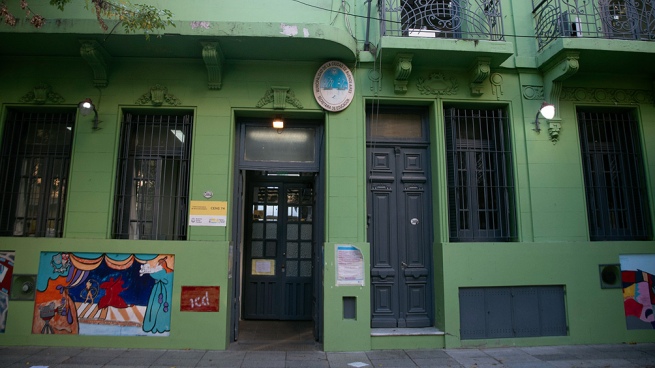Access to the full day in the primary schools of the City “shows inequalities between the north and the south” since while in the school districts located in the neighborhoods of Villa Urquiza, Agronomy, La Paternal, Chacarita and Almagro attend with this hourly modality between 6 and 7 out of 10 boys and girls, in the neighborhoods of Barracas, Parque Patricios, Villa Soldati and Lugano only 3 out of 10 do.
The data comes from a report published by the Buenos Aires legislator of the Frente de Todos Maru Bielli, who updated an investigation carried out by the Civil Association for Equality and Justice (ACIJ) in 2012.
The document compares the number of full-time establishments -which implies the permanence of the students in the establishments in a range of eight hours on average- between school districts 2, 14 and 15, located in the north of Buenos Aires; and 5, 19 and 21, located in the south of the capital.
The former correspond to neighborhoods such as Villa Urquiza, Agronomy, Paternal, Chacarita and Almagro, among others, while the latter refer to Barracas, Parque Patricios, Pompeya, Villa Soldati and Lugano.
“From the analysis carried out, it emerges that the situation of inequality mentioned 10 years ago by ACIJ was not only not reversed, but also deepened,” the survey highlights.
“From the analysis carried out, it emerges that the situation of inequality mentioned 10 years ago by ACIJ was not only not reversed, but also deepened”
In that sense, it details that “the average extension of the full day in the northern districts between 2010 and 2020 is 7.02% while in the southern districts it is 4.47%”.
“In other words, the expansion of the full-time educational offer was not prioritized in those districts where there is greater demand, more unfavorable socioeconomic conditions and where the offer was lower, which has repercussions on an even greater increase in the existing gap,” he adds.
Other data shown in the report states that “in the last ten years, both the total enrollment in each of the districts, as well as the enrollment of full-time students, have grown only slightly.”
“It can be concluded that the limited growth of the full day in percentage terms implies a zero increase in the total number of boys and girls who have access to said day”, indicates.
And he specifies that “when analyzing the data from 2010 and 2020, the numbers remain the same. While in the northern districts, 6 and 7 out of 10 children attend the full day; in the southern districts they are only 3 out of 10”.
By way of conclusion, Bielli evaluated that “the extension of the full day in the City did not take into account the existing socio-territorial inequalities”.
“In the last ten years, both the total enrollment in each of the districts, as well as the enrollment of full-time students, have grown only slightly”
“The insignificant increase in the full day ended up widening the gaps in possibilities between the northern and southern districts of the City,” he said.
In that sense, he said “The most affected neighborhoods are Barracas, Parque Patricios, Nueva Pompeya, Villa Soldati, Villa Lugano and Villa Riachuelo. Precisely neighborhoods neglected by the City Government, both in this and in other areas.”
“The full day has implications for access to the right to education, fundamentally compulsory education. It has to do with generating from the State and from the school a space for teaching, development and protection, which does justice to the majority sectors of the population that is in a situation of social and economic vulnerability”, he considered.
and ensured that “The full day is a responsibility of the State so that students can spend more time in school and from the State, in any case, generate greater educational justice in that act.”
On the other hand, he questioned the program of the Buenos Aires Government called “Extended Day”, which works counter-turn, considering that “it does not include all the years of the primary and secondary level, nor is it implemented every day of the week”, which “It has a negative impact on the daily routine of families, and particularly on women in charge of care tasks.”
“The implementation of the ‘Extended Day’ may be transitional, but it does not exempt the City Government from the responsibility of implementing policies aimed at guaranteeing equitable access to the full day for all the girls and boys in the city,” he concluded.


















